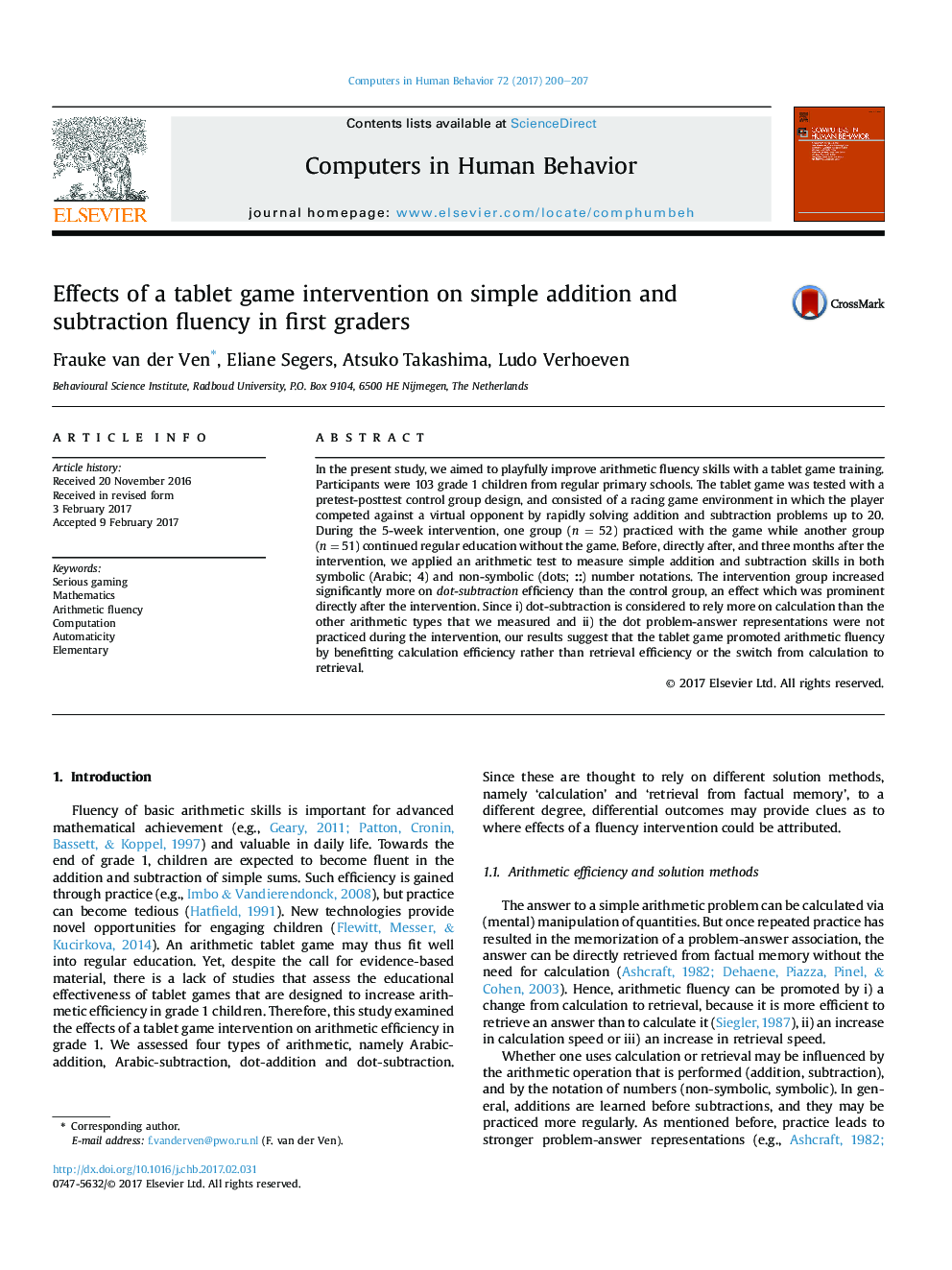| Article ID | Journal | Published Year | Pages | File Type |
|---|---|---|---|---|
| 4937092 | Computers in Human Behavior | 2017 | 8 Pages |
Abstract
In the present study, we aimed to playfully improve arithmetic fluency skills with a tablet game training. Participants were 103 grade 1 children from regular primary schools. The tablet game was tested with a pretest-posttest control group design, and consisted of a racing game environment in which the player competed against a virtual opponent by rapidly solving addition and subtraction problems up to 20. During the 5-week intervention, one group (n = 52) practiced with the game while another group (n = 51) continued regular education without the game. Before, directly after, and three months after the intervention, we applied an arithmetic test to measure simple addition and subtraction skills in both symbolic (Arabic; 4) and non-symbolic (dots; ::) number notations. The intervention group increased significantly more on dot-subtraction efficiency than the control group, an effect which was prominent directly after the intervention. Since i) dot-subtraction is considered to rely more on calculation than the other arithmetic types that we measured and ii) the dot problem-answer representations were not practiced during the intervention, our results suggest that the tablet game promoted arithmetic fluency by benefitting calculation efficiency rather than retrieval efficiency or the switch from calculation to retrieval.
Related Topics
Physical Sciences and Engineering
Computer Science
Computer Science Applications
Authors
Frauke van der Ven, Eliane Segers, Atsuko Takashima, Ludo Verhoeven,
